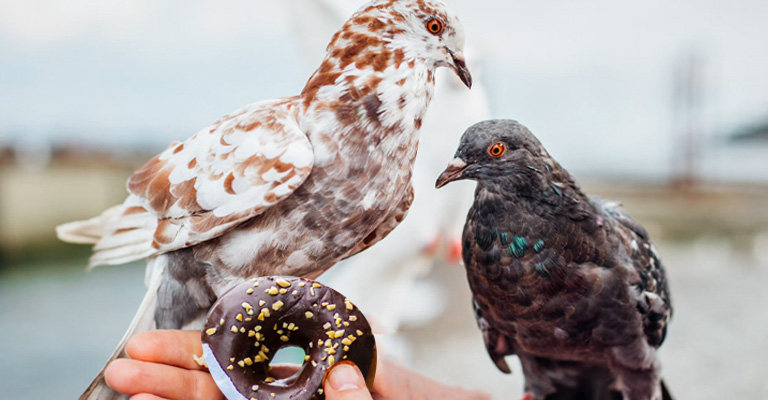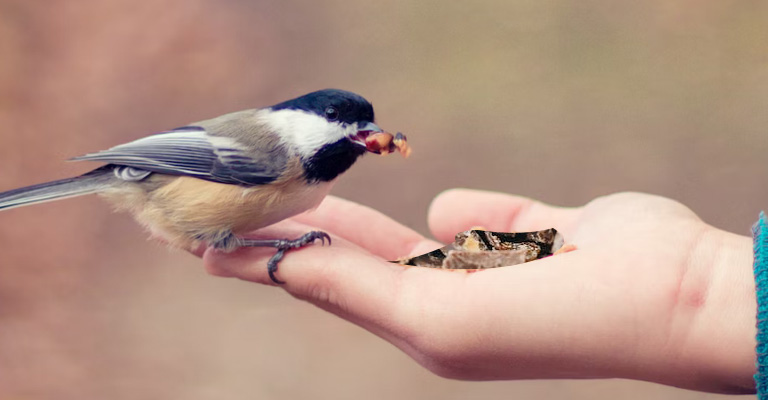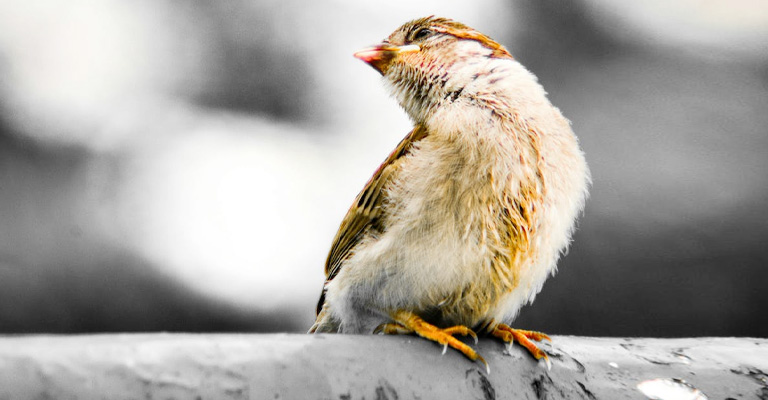“Feed the birds and what have you got? Fat birds.” – James Brady
It is often too tempting for us to treat our birds with sweets and bread. And chocolates can be the perfect example that makes it to our hands.
But are chocolates safe for birds? Can birds eat chocolate? Should they have a bad stomach or something? Before treating your small friends, you should ask these questions to yourself.
Otherwise, you may end up hurting them unintentionally. Birds are sensitive creatures and require the right treatment. One wrong step and you have a dead bird instead of a fat one!
Today, we will answer the question, are chocolates safe for birds? Read till the end of our article, we have hidden tips to exclusive suggestions for your birds that you wouldn’t find naturally.

Can Birds Eat Chocolate?
Chocolate is a beloved treat worldwide, and it comes in different forms and flavors. It’s made from cocoa beans and can be found in chocolate bars, hot cocoa, and even baked goods like cookies and cakes.
We enjoy the rich taste and the feelings of pleasure and happiness it can bring, thanks to compounds like theobromine and phenylethylamine. But what about birds?
The answer may disappoint you a bit. Birds, unlike humans, have specific dietary needs. They must have a balanced diet to stay healthy and shine in their natural habitat.
The regular diet includes seeds, peanuts, fruits, insects, and even some nectar. Over 10,000 bird species are available and each species has a different taste in food.
So, when it comes down to, Can Birds Eat Chocolate? The answer is NO. You shouldn’t offer birds chocolates. Our beloved chocolate has many substances like theobromine. Such elements are highly toxic to many animals, including birds.
Birds, particularly parrots, canaries, and cockatiels, are sensitive to theobromine. Even a small amount of chocolate can have deadly effects on them. Birds process theobromine differently than us, which is, let’s just say, not good news for them.
What Happens When Birds Consume Chocolate?

There have been many incidents where well-meaning bird owners have accidentally fed chocolate to their pets, and you won’t believe the tragic outcomes.
Events of pet parrots or canaries becoming seriously ill or even dying after eating chocolate are stark reminders for us. It should remind us of the dangers it holds for our feathered friends.
Other threats that should work as a reminder for you are,
- Increased Heart Rate: The theobromine in chocolate directly acts on the bird’s nervous system. It instantly increases the heart rate of birds. You may notice your bird feels restless and agitated.
- They Are Shaking: There have been many reports! Birds may start to shake or tremble after they feed on the chocolate. It happens when theobromine attacks the nervous system.
- Seizures Are Common: Theobromine is poison for birds. Birds can also have seizures in severe cases. FYI, Seizures are uncontrolled and often violent movements of the bird’s body. It is distressing and harmful.
- Vomiting and Diarrhea: Your bird may react to the elements of chocolates differently. Their tiny bodies would naturally want to get rid of the toxic substances.
It can ultimately lead to vomiting and diarrhea. Eventually, your bird will dehydrate and become weaker.
- Hypo Thirsty: Theobromine can also make the bird excessively thirsty. They may frequently urinate. It can ultimately contribute to dehydration. Additionally, they may become unusual and desperate to overcome the sickness.
Although not common, sometimes, their muscle may become rigid or stiff and birds may not move naturally.
We have several real-life incidents where birds have suffered due to the consumption of chocolate.
Sometimes, our negligence may draw the conclusion of their lives.
You shouldn’t move carelessly and drop any piece of chocolate on the floor if you leave your bird open. Once a pet parrot accidentally ate a piece of chocolate from the floor.
Within a few hours, it began to show signs of theobromine poisoning, including shaking, vomiting, and increased heart rate. Even though veterinary care was assured immediately, the parrot unfortunately did not survive.
It is not so uncommon that, people with good intentions often offer chocolate as a treat for wild birds in their gardens.
Unfortunately, it can be harmful to the birds that visit. Officials have reported incidents where wild birds became ill or died after eating chocolate left out in bird feeders. Hence, please don’t leave out chocolates in the bird feeders.
Alternate Treats for Birds:

If your hands are too interested in treating the birds, you can offer them food that can add value to their diet. Such as,
- Seeds: Birds love sunflower seeds, safflower seeds, and millet. I have additionally brought a pack of sunflower seeds and I offer them from time to time.
- Fruits: Offer fresh fruits like apples, pears, or berries. You can give almost any kind of fruit to the birds. But when you do, make sure to remove the seeds and pits.
- Insects: Live or dried mealworms and crickets are protein-rich snacks for domestic birds.
- Nectar: Hummingbirds, in particular, enjoy nectar from specialized feeders.
- Nut butter: Peanut butter or almond butter can be smeared on tree branches or feeders. You can smash the nuts before offering too.
Do you enjoy watching birds in your garden or have pet birds at home? Then, it is absolutely essential to create a safe environment for them.
You can additionally,
- Provide regular fresh water.
- Properly clean the bird feeders regularly.
- Offer a variety of bird-friendly foods.
- Do not use harmful substances like pesticides and herbicides.
- Don’t offer chocolate, caffeine-based fruits, sauce, soda, or any kind of soft drinks.
In Short,
Birds are small and beautiful creatures of the earth. They may not know what’s good or bad for them and may eat chocolates when you offer them. But it is our duty to research properly and not engage them in harmful foods, and at some point deadly for them.
When visiting the park or zoo, please prevent yourself from offering chocolate and even bread crumbs (basically any food that has sweetenings) and let them sing beautifully.
Do you like our article? Let us know in the comment section how our article has helped you. Also, don’t forget to share our article with your friends and raise awareness too.